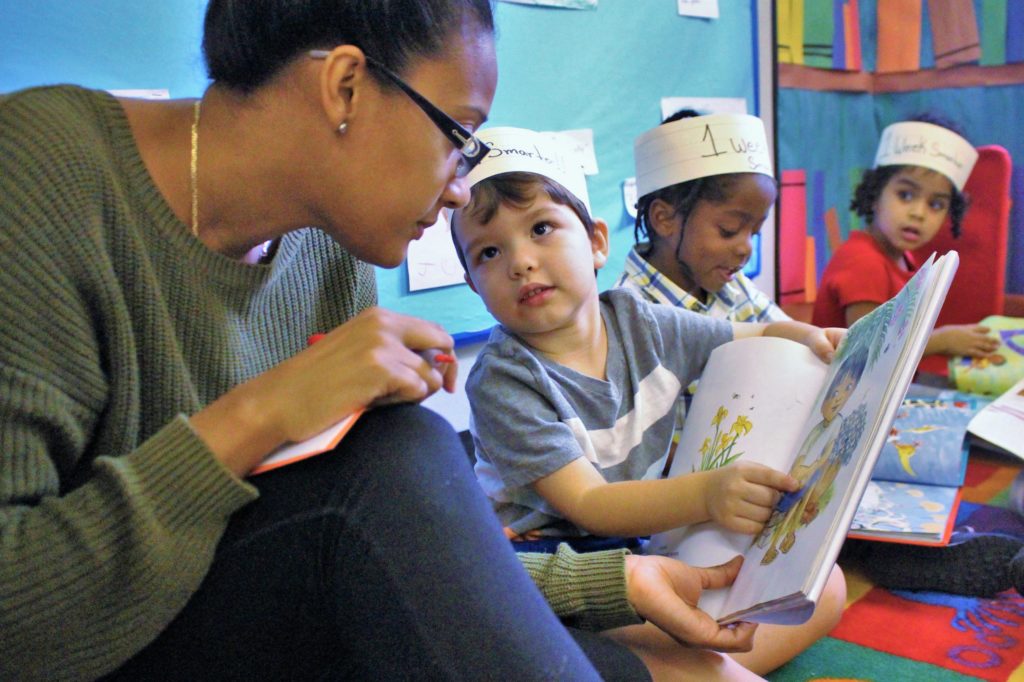
On a Friday afternoon at our 91st Street Early Childhood Education center, the children in Zalma Arzu’s classroom celebrated with hand-lettered paper crowns that proclaimed “One Week Smarter.” When Arzu told them they could have free reading time, they took books enthusiastically from the shelf in the corner and settled down on the nearby rug and sofa.
“I like books because sometimes they have my favorite things in them, like animals,” said 4-year-old Prince.
His classmate Nyimah likes animals too. “My favorite is the gorilla,” she declared.
Books are part of the daily schedule in all four of our early learning centers. “Every classroom has a library,” says Early Childhood Education director Viodelka Moreira. “At circle time in the morning they go over days of the week and weather and things, and then the teacher reads a book with them. In the afternoon they read another book.”
What’s the secret to getting even preschool-aged children hooked on reading? “I think when the teachers are passionate about it, they carry it into the classroom every day,” Moreira said.
The 91st Street center gets an extra boost from its partnership with Books for Kids, a nonprofit whose mission is to “promote literacy among all children with a special emphasis on low-income and at-risk preschool-aged children.” Books for Kids library specialist Tanya Dougherty visits once a week to read with each classroom, and coordinates with the teachers to ensure the books complement the curriculum.
“We find the teachers at Goddard to be especially receptive and reflective. The teachers are observant and they pick right up on what the children are most interested in,” said Books for Kids Program Director Lisa Francese.
The organization also provides books to the center to loan out to children, and gives them to families to take home and read together. Last year the children borrowed 713 books, of which their favorites were Creepy Pair of Underwear and I Really Like Slop! The organization distributed 500 books to keep.
“We give out as many books as possible” said Francese. “That’s because reading isn’t simply a classroom activity; families play perhaps the most important role in encouraging their children to form a lifelong love books.”
Here are some tips from Books for Kids on how to encourage small children to read:
- It is never, ever too early to read to your child. Incorporate reading into your daily routines with your newborn, such as after feedings and before bedtime.
- Put away your phone and turn off all other electronics. Reading is a true bonding experience and a special time between you and your child and should not be interrupted.
- Ask your child questions about the books you read together, and encourage your child to ask you questions too.
- Help your child start to recognize letters by pointing them out when you both see them (this also teaches that print has a purpose).
- Be a reading role model by making sure that your child sees you reading books at home.
- Your child may want you to read the same story over and over again. That’s great! After several retellings, ask your child to tell you the story.
- Most importantly—HAVE FUN! If you do, your child will too!